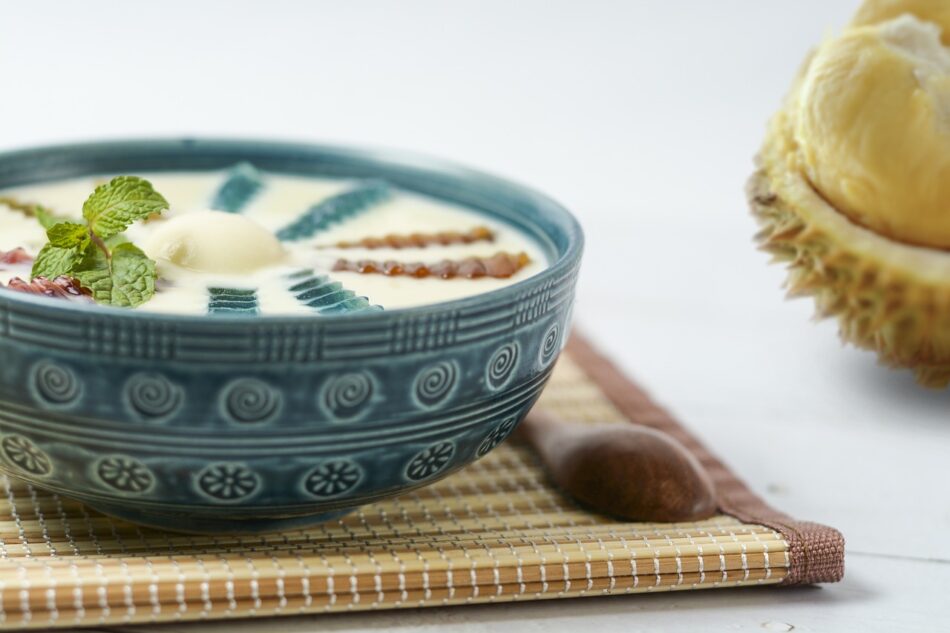Coconut is a unique and versatile ingredient that is enjoyed all over the world. But is it a fruit or a vegetable? Well, according to its classification, coconut is actually a fruit. More specifically, it is a drupe, which means it has a hard outer layer and a fleshy inner layer that are both edible.
Coconut is known for its numerous health benefits, and it is used in a variety of cuisines and beauty products. But it is not just the fruit of the coconut tree that is valuable. The tree itself is often considered to be a type of vegetable, as it provides a variety of different edible parts.
The coconut palm is a highly sustainable crop that can be used for both food and non-food purposes. For example, the clear, sweet liquid found inside young green coconuts, known as coconut water, is a popular drink in tropical regions and is known for its hydrating properties. The meat of a mature coconut can be blended with water to make coconut milk, which can be used as a vegan alternative to dairy milk. And the oil extracted from the meat of a mature coconut, known as coconut oil, has numerous health benefits and is used in cooking, beauty products, and more.
But that is not all. The husk and shell of the coconut fruit can also be used for various purposes. For example, the tough, fibrous husk can be used to make rope and other materials, while the hard, woody shell can be used as fuel or to make decorative items.
In conclusion, the coconut tree is a valuable resource that provides both fruits and vegetables. Its versatility and nutritional benefits make it an important ingredient in many different industries, from cooking to beauty products.
Coconut as a Fruit
Coconut, despite often being mistaken for a nut, is actually classified as a fruit. It is a drupe, which means it has a hard, outer layer and a fleshy, edible inner layer that surrounds a seed. The coconut fruit is a rich source of vitamins and minerals, including potassium, manganese, and copper. It is also high in dietary fiber and contains healthy fats.
There are several different types of coconut fruit, each with its own unique characteristics. The most commonly consumed type is the mature coconut, which has a hard, brown outer layer. It is typically used for its meat and coconut oil. Young coconuts, on the other hand, have a green exterior and a thin, white husk. They are consumed primarily for their water, which is known for its hydrating properties and high electrolyte content.
Aside from its nutritional benefits, the coconut fruit has also been used for centuries in various cultures for medicinal purposes. It has been shown to have anti-inflammatory and antioxidant properties, as well as potential benefits for heart health and brain function.
Coconut as a Vegetable
While coconut is classified as a fruit, it is also considered a vegetable since it is harvested from the coconut palm tree. The tree itself is a type of vegetable and is used for a variety of purposes. The trunk of the tree is used for building construction, and the leaves are used for roofing and making baskets. Even the roots are used for medicine in some cultures.
However, when it comes to food, it’s not just the flesh of the coconut that is used. The coconut palm also produces a sweet sap that is fermented to make palm wine and used in cooking. The outer husk of the coconut can be used for fuel, and the inner shell can be made into charcoal. The fibrous husk is also used to make ropes and mats.
Coconut as a vegetable offers a wide range of uses beyond just its flesh and milk. Its versatility makes it an important crop for many tropical regions, and its various parts are integral to the cultures that rely on it.
Coconut Water
Coconut water is a refreshing and delicious drink that is becoming increasingly popular around the world. It is the clear, sweet liquid found inside young green coconuts and is known for its hydrating properties. This tropical beverage is not only tasty but also packed with nutrients like potassium, magnesium, and calcium. In fact, one cup of coconut water contains more potassium than a banana!
Coconut water is also a versatile ingredient that can be used in various cooking and baking recipes. It can be used as a natural sweetener in smoothies, sauces, and desserts. It is also a great addition to marinades and dressings, adding a unique tropical flavor to your dishes.
Additionally, coconut water has gained popularity in the sports world due to its hydrating properties. It is a natural source of electrolytes and has been shown to be just as effective as sports drinks in replenishing fluids and nutrients lost during intense physical activity. Some athletes even drink coconut water as a post-workout recovery drink.
In summary, coconut water is a tasty and nutritious drink that can be enjoyed on its own or used in various recipes. Its hydrating properties make it a popular choice among athletes and those looking for a natural way to replenish fluids and electrolytes.
Coconut Milk
Coconut milk is a versatile ingredient that can be used in a variety of dishes, from curries and soups to smoothies and desserts. It is made by blending the meat of a mature coconut with water, resulting in a creamy and slightly sweet liquid. In addition to its delicious flavor, coconut milk also offers several health benefits. It is a great source of healthy fats that can help promote weight loss, improve brain function, and lower the risk of heart disease.
Coconut milk is also a popular ingredient for those following a vegan or dairy-free diet as it can be used as a substitute for dairy milk in many recipes. It is particularly useful in baking as it adds richness and moisture to baked goods without the need for butter or eggs.
Aside from its culinary uses, coconut milk also has a variety of beauty benefits. It can be used as a natural conditioner for hair, providing deep hydration and nourishment. It also has anti-inflammatory properties that can help soothe and calm skin, making it a popular ingredient in many skincare products.
Overall, coconut milk is a delicious and nutritious ingredient that can be used in a vast array of recipes. Whether you are looking to add richness to a curry, bake a dairy-free dessert, or nourish your hair and skin, coconut milk is a versatile and beneficial ingredient to have on hand.
Coconut Oil
Coconut oil is a versatile ingredient that can be used in many different ways. In addition to its popularity in beauty products, it is also commonly used in cooking as a healthier alternative to traditional oils. Coconut oil is unique in that it is high in healthy fats known as medium-chain triglycerides (MCTs), which are easily metabolized by the body and can aid in weight loss and improved brain function.
Some of the other benefits of coconut oil include its antibacterial and anti-inflammatory properties, making it a useful ingredient in natural remedies and treatments for various ailments. It can also be used as a natural moisturizer for the skin and hair, and has been shown to improve the health and appearance of both.
Coconut oil can be used in a variety of cooking applications, including as a replacement for butter or oil in recipes, or as a cooking spray for preventing sticking. It is also a popular ingredient in vegan baking recipes, as it can substitute for eggs or butter in some cases. When using coconut oil in cooking, it is important to look for high-quality, unrefined options for the best flavor and health benefits.
Coconut Husk and Shell
Coconut husk and shell are by-products of the coconut fruit and are often used for various purposes. The husk of the coconut is the fibrous outer layer that encases the hard inner shell. This layer is generally used to make rope, doormats, brushes, and other handicrafts. The coir obtained from the husk is highly durable and resistant to water, making it ideal for outdoor use.
The hard, woody shell of the coconut is also put to use. The shell is burned for fuel in many countries, providing an alternative to firewood. It is also ground and used as a medium for growing plants, known as coconut coir, and as a natural exfoliant in beauty products. The charcoal derived from the coconut shell is used in the production of activated carbon, which is widely used in water filtration systems.
In addition to these uses, coconut shells and husks are also being explored as potential sources of biofuel and as a replacement for wood in construction. The high lignin and cellulose content of these materials make them a promising option for renewable energy and sustainable building.
Overall, the coconut fruit is a versatile and valuable resource, with various uses beyond just its meat and water. Its by-products, namely coconut husk and shell, have proven to be useful in many industries, making it an important part of many people’s lives.
The Verdict
After delving into the various uses of the coconut tree, it’s clear that coconut can be classified as both a fruit and a vegetable. Its fleshy inner layer and hard outer layer make it a drupe, which is a type of fruit. On the other hand, the coconut palm tree is considered a type of vegetable due to its use as a food source.
The versatility and nutritious qualities of coconut make it a highly valuable ingredient in many industries. From food to beauty products, coconut can be used in various forms such as coconut water, coconut milk, and coconut oil. Coconut water is a popular drink in tropical regions, known for its hydrating properties. Coconut milk is a great vegan alternative to dairy and can be used in many dishes. Coconut oil is used in cosmetics and cooking due to its various health benefits.
Moreover, even the coconut husk and shell are used for various purposes such as fuel, rope, and other materials. With all its uses and benefits, it’s no wonder why coconut is a widely beloved ingredient. In conclusion, coconut is a drupe fruit and a vegetable that can be used in numerous ways, making it a valuable resource in various industries.

